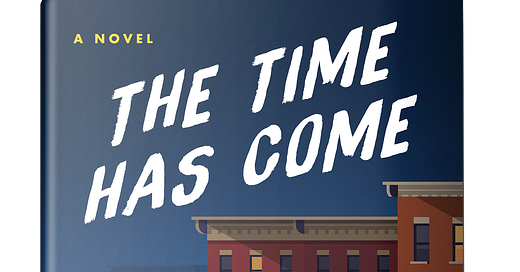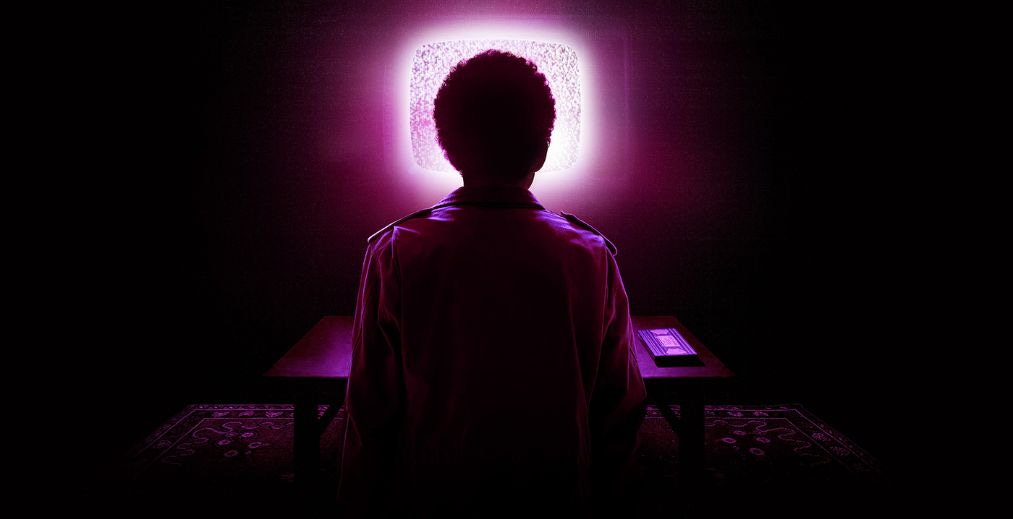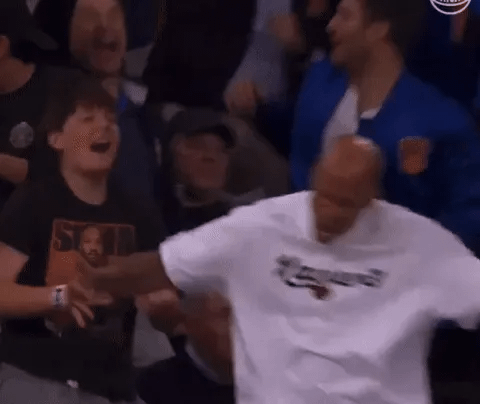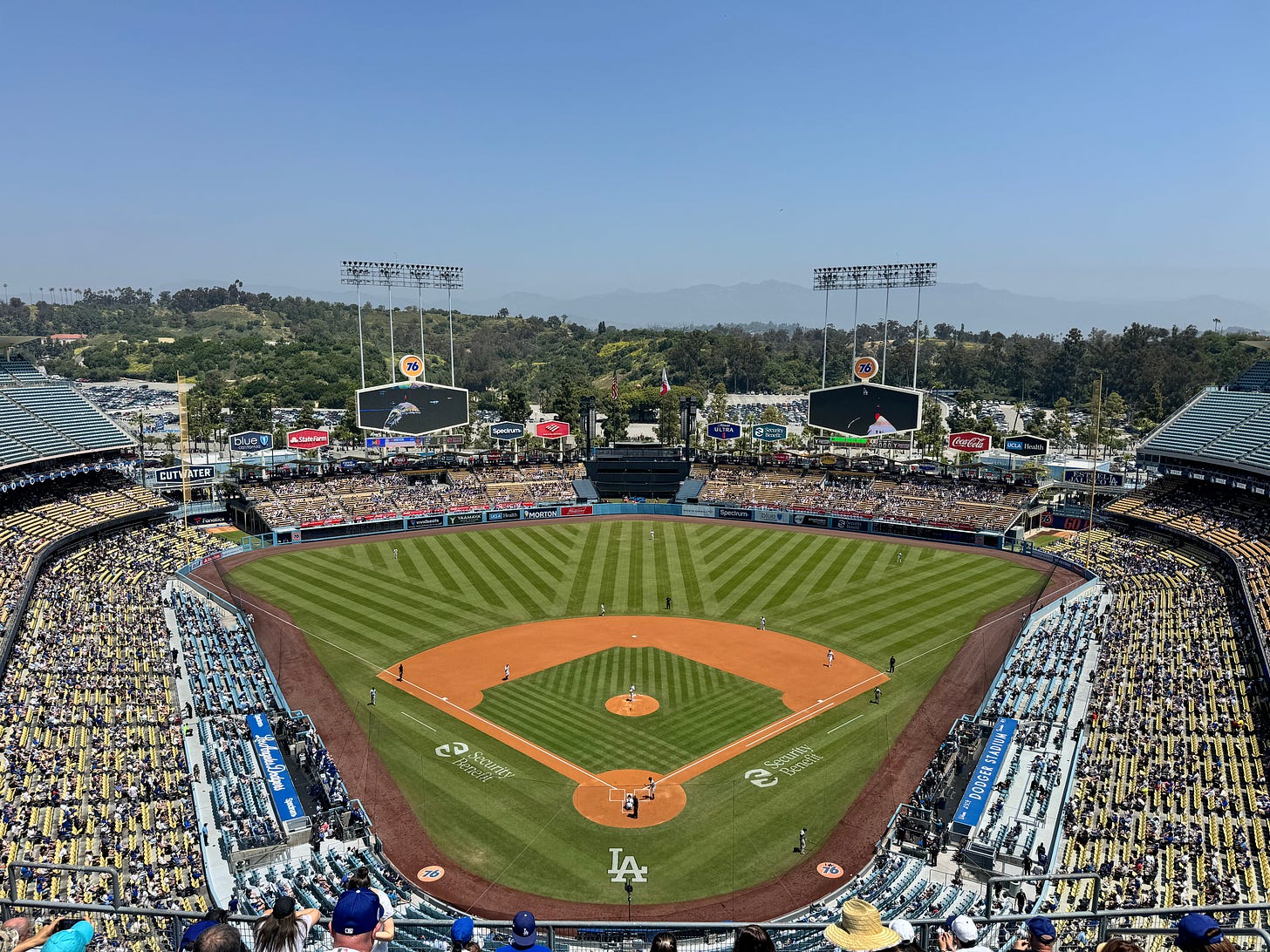Volume 5, Issue 19: The Second Coming
"You're at the precipice, Tony, of an enormous crossroad."
Here is a button where you can subscribe to this newsletter now, if you have not previously done so. I do hope that you enjoy it.
Sometime in the next three weeks, I will turn in the first draft of my next, currently untitled novel to my editor at Harper Books.
I’m almost there.
This is the second book of a two-book deal with Harper, signed in the wake of How Lucky’s success, that I’m hoping will grow into another two-book deal, and then another one, and another one, hopefully until I or my editor dies. I have come up with a reliable routine for writing these. Every other year, I start a book on Labor Day and finish it by Memorial Day. After I turn it in, I spend the rest of that year editing it, fixing it, packaging it, all the things you have to do to get a book ready for publication, and then it’s ready for release by the following May. Then I spend four months promoting it before starting the next one by that Labor Day. Again: Hopefully this will continue until I shuffle off this mortal coil. It turns out that I enjoy writing these. I think I’m getting better at it too.
You will be hearing a ton about the new book in the coming months, perhaps more than you will even want to, and at some point I may even reach out to you all to help me come up with a title for it, something I’ve discovered is outside my particular skillset. But now, because it is being released in paperback this Tuesday, I’d like to talk one final time about the last one. And then I can put it to bed.
The original notion for The Time Has Come came from a journalistic idea I had more than a decade ago, back before I was writing novels at all. I wanted to write about a terrorist attack, but following 30 (or so) different people throughout their day leading up to it: What they were doing, what they had planned for that day, what was occupying their mind before everything in their world was blown apart. The idea was that I would write one chapter about each of them, and then at the end, I’d do a big tick-tock of the attack itself, following the people we had met along the way—what happened to them, what they saw, how they made it through, if they did, in fact, make it through. So often when there is some sort of seismic event, like a terrorist attack or a shooting, we reduce everyone involved to statistics, or frivolous anecdotes, or we concentrate too much on the attacker himself, as if he’s the important story rather than all the people he attacked. I wanted to capture what it would feel like to just be going about your day, like all of us do all the time, and suddenly out of nowhere find yourself in a life-or-death situation that would change everything forever. I realized pretty quickly that I wasn’t a good enough reporter to pull something like this off, but the notion never left my brain.
When How Lucky took off the way it did and we started talking about the next project, this old idea began rattling around again, this time as a fictional project. The plan for the How Lucky follow-up was to take some of the themes and subtexts of that book—suffering, resilience, hope, an unfailing belief in the overarching goodness of humanity often in spite of all available evidence—and expand the canvas: To swing a little bigger, while also being willing to take a few more chances. This is a common tendency for follow-ups to surprise hits, regardless of art form; you can see it from Pulp Fiction to Pinkerton to You Shall Know Our Velocity to, most recently, Jane Schoenbrun’s fantastic I Saw the TV Glow. You take the themes that obsess you, and you try to hit them a little harder and a little wider. Sometimes the audience goes with you, and sometimes it doesn’t. But it’s a logical progression.
I realized that 30-plus people were way too many, of course; there are those who have read The Time Has Come who may think that seven is too many. But I did want to try to capture what it felt like in that post-pandemic summer—or at least post-vaccine summer—in which many of us emerged from the most tumultuous period of our lives trying to find some sort of mooring, hopeful that maybe we could reinvent ourselves, that maybe we could come out of it all right. And I wanted to capture it from a variety of angles, with wide variety of people, in a small(ish) town that I know intimately well and wanted to share with the world. The scion of an upper-class family struggling with addiction and loss; the recent widow searching for her identity now that she’s alone; the working-class Trump voter trying to pave the way for his gifted son; the idealist activist reckoning with the fear that the world just might not want to change after all; the recovering addict wanting to atone for his past missteps; the military nurse aghast with the America that was waiting for her when she returned from duty; and Tina, the damaged soul whose grief has led her down a conspiratorial rabbit hole from which she may never escape.
Not all of that was fully formed when I sat down to write this thing: One of the joys, I’ve learned, of writing a novel is making all those little discoveries along the way, those moments when the characters take turns that surprise you and often themselves. But that’s what I wanted to capture: These seven people, their lives, their hopes, their dreams, their fears, and how all of those things essentially freeze in place when they all end up being at the same pharmacy on the same eventful Thursday afternoon—and what happens next. I basically wanted to reverse-engineer a thriller: To announce on the first page that something terrible is going to happen at the end of the book, and have that fact, hopefully, invest you in the day-to-day dramas of every character, knowing that they’re all going to end up in the middle of that terrible thing, something the reader is aware of even if they’re not. I tied it to How Lucky in variety of ways, from the Athens setting to three characters who are minor in that book but major in this one, the sort of universe-building I find irresistible; I’ve done this in the next book as well. But in the end, The Time Has Come is about that core theme I care about more than anything else: That the world is hard, and scary, and often quite despairing, and that people can be cruel and destructive, which is exactly why it’s so important to protect that world and exactly why it’s so important to care for all of those people—to always try to help. You’ve just gotta do your best. The process of writing it was difficult, getting the pacing right, tying together everyone’s stories, drawing those connections, hopefully making you the reader be attached and sympathetic to people they might never encounter in their own lives (or particularly like if they did). But it was also, more than it was anything else, fun: I loved getting to hang out with every one of these people, and I couldn’t wait for you to meet all of them.
I did, however, know that this book was going to be a tougher sell than How Lucky. How Lucky has a very simple premise: A man with a severe disability witnesses a crime and tries to solve it. There’s a lot more going on in that book, of course, and narrowing it to just that logline is reductive and, in the end, not really what the book is about. But you can still describe it easily to someone who doesn’t know anything about it and might potentially be curious. You cannot do this with The Time Has Come. If you’ve read the book, you know how difficult it is to do any sort of elevator pitch. So there’s this woman and she’s been isolated during the pandemic and she has given herself over to conspiratorial thinking and she comes to believe a family that owns a local pharmacy is responsible for all her problems and she announces that she’s going to bust in there with guns and force them to face their crimes MEANWHILE there are six other people who are just going about their days without knowing they are about to all be at the pharmacy together when she busts in so we spend the whole book getting to know them before all their fates collide. I mean, that elevator better be in a really tall building. Also, I decided to tell this story in the third person rather than the more immediate, direct first-person “voicey” narrator of How Lucky, which was exciting and something I believe very much paid off creatively but was, in retrospect, perhaps a little distancing for some of those who fell in love with Daniel from How Lucky, particularly because Daniel isn’t a character in this story at all. (Though he does make a cameo.) It’s just a different book, one that requires a little more patience and faith than How Lucky did.
I was delighted that many people had that patience and faith—including book critics, who gave the book much better reviews than How Lucky initially received—but it is undeniable that the book reached fewer people than How Lucky did. The book did well, no one at Harper was mad or anything, but some people found the less book direct, more challenging, than they might have been willing or ready for. A common Goodreads review will feature some sort of “there are so many characters, how am I supposed to keep track of all these people?” line, and while I may find that a bit frustrating—I love these characters and their stories and worked very hard to make them as simple as easy to follow—if enough people feel that way about something you made, you owe to them, and yourself, to listen. Again, my editor and everyone at Harper was happy with the book—it is getting a paperback run, after all—but at the end of the day, you do want to build on your last book’s success, not regress from it. This was one of the reasons I insisted on a two-book deal in the first place; if the second one didn’t do as well as How Lucky, we’d get another shot at it. The next book, I believe, features a combination of the high-concept, strong first-person voice aspects of How Lucky and the narrative complexity (and, one hopes, natural writing improvement you’d see from knowing what I’m doing better having done it twice now) of The Time Has Come. I think you’re all going to like it a lot.
But I will always love The Time Has Come—no matter how many books I write, it may be the one that I have the fondest spot in my heart for, because it was adventurous and different and optimistic and in many ways the purest expression of the emotions I want to put out into the world. And also important: I proved to myself that I could do it, that I could come up with an idea, map out how it would work and execute it to the point that it came out precisely the way that I wanted it to. I learned that I want to write novels the rest of my life, that I really do want to put myself through this from Labor Day to Memorial Day every other year, that I might actually, as I stumble into middle age, have something new to offer the world. I’m proud of it. I want as many people to read it as possible.
So, as the paperback is released on Tuesday, and I turn in the next project shortly thereafter, I wanted to give it one last chance to breathe, extol its virtues to the world one last time before moving on saying goodbye. I love this little book. If you haven’t read it yet, I think you would love it too.
Also, I can’t recommend the audiobook enough. Jane Oppenheimer and Anna Caputo did a fantastic job—they were nominated for a Voice Arts Award for their work on The Time Has Come—and found even more depths in these characters that I didn’t know were there. If you’re not so into the whole reading part, they’re great company for a long drive.
Here is a numerical breakdown of all the things I wrote this week, in order of what I believe to be their quality.
Melissa McCarthy Rankings, Vulture. Updated with Unfrosted.
This Week’s Five Fascinations, MLB.com. This week: Slugging catchers, Gavin Stone, Christian Yelich, Giancarlo Stanton and those spunky Nationals.
Potential Division Races, Ranked, MLB.com. Finally the AL Central is fun.
This Week’s Power Rankings, MLB.com. I have already written the intro for when the Orioles take over the No. 1 spot, so they should hurry up and do so.
PODCASTS
Grierson & Leitch, in person show, our 400th episode! (Wow.) We discuss “The Fall Guy,” “I Saw the TV Glow” and “Unfrosted.”
Seeing Red, Bernie and I know the Cardinals are bad now.
LONG STORY YOU SHOULD READ THIS MORNING … OF THE WEEK
Knicks Film School, Jonathan Macri. I am losing my mind about these New York Knicks—sure beats watching Cardinals games anyway—and reading Jonathan Macri’s fantastic Knicks Film School Substack is the first thing I do before, after and sometimes during every game. This is the sort of smart fan writing I love more than anything. GO KNICKS. Tough loss last night, but this series is still ours.
Also, this Washington Post piece about what Mar-a-Lago is like these days is a darkly enjoyable read.
ONGOING LETTER-WRITING PROJECT!
This is your reminder that if you write me a letter and put it in the mail, I will respond to it with a letter of my own, and send that letter right to you! It really happens! Hundreds of satisfied customers!
Write me at:
Will Leitch
P.O. Box 48
Athens GA 30603
CURRENTLY LISTENING TO
“Dinosaur Act,” Low. The great Steve Albini died this week. I don’t know if Albini officially counted as “Generation X,” but his view of the world always struck me as what the Gen-X ethos could be at its best: He cared passionately but uncompromisingly, obsessed only with truth and pure unvarnished reality, no matter the cost. He is associated mostly with loud, aggressive noise, but the point of Albini’s “producing” (a term he hated) was to make the band sound like the truest version of itself. There’s nothing “loud” about this Low song Albini produced, but it sounds like the straight, undistilled Low. I love it, and I love the way it sounds. RIP, Albini.
Remember to listen to The Official Will Leitch Newsletter Spotify Playlist, featuring every song ever mentioned in this section.
Also, now there is an Official The Time Has Come Spotify Playlist.
Got to go to this beautiful stadium this week.
Los Angeles is the best.
Have a great weekend, all.
Best,
Will









Sometimes I dream of moving back to the SF Bay Area or New York, but Southern California does have its strong points.
It would be great if you could write a bit more about that year of getting the book ready you mentioned. You create these characters and likely live with them in your mind deeply during the many months of writing. Then Memorial Day comes and it sounds like you switch to more of the mechanics of getting the book out. What does that involve in more detail? What do you do? What do others in the process do? If you've shared this sort of info previously, I must have missed it. Thanks for the weekly news letter.